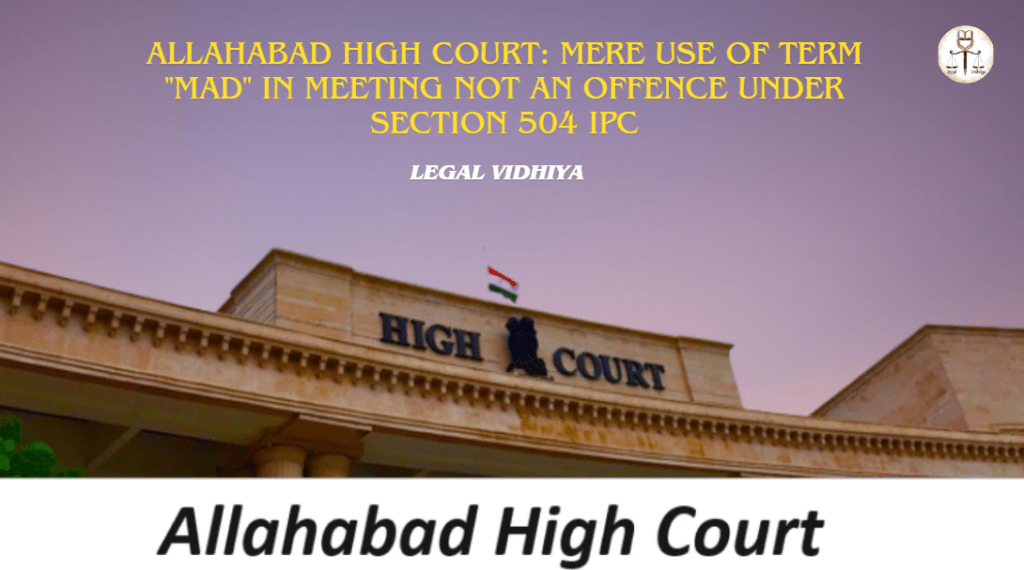
In a recent decision, the Allahabad High Court clarified that merely referring to someone as “mad” during a meeting does not constitute an offence under Section 504 of the Indian Penal Code (IPC), which pertains to intentional insult intended to provoke a breach of peace.
The judgment by Justice Jyotsna Sharma cited the Supreme Court’s precedent in Fiona Shirkhande Vs. State of Maharashtra and Another (2013), emphasizing that an intentional insult must be of such a nature as to incite the person insulted to break public peace or commit another offence.
The Allahabad High Court noted that in the present case, the term used was an unintended spontaneous remark made in the context of various allegations against the accused, who served as the executive director of a society. The court held that this remark did not reach the degree necessary to provoke a breach of peace.
The single-judge bench opined, “More often than not, in an informal atmosphere, such remarks may be carelessly thrown and may even form part of casual conversation having no criminal element for intentionally causing a breach of peace.”
The case involved a petition filed by Judith Maria Monika Killer @ Sangeeta J.K under Article 227, challenging an order summoning her under Section 504 IPC. The petitioner sought the quashing of the entire proceedings, arguing that the complaint was false and frivolous.
The background of the case included a complaint filed by Dashrath Kumar Dixit, an advocate, against the petitioner and others associated with Kiran Society. Dixit alleged misuse of funds obtained from foreign countries in the name of the welfare of handicapped individuals. During a meeting called by an inquiry officer, the petitioner allegedly insulted Dixit by calling him “mad.”
The petitioner’s counsel argued before the high court that the complaint was baseless, pointing out significant delays in filing and insufficient evidence to establish an offence under Section 504 IPC. The court agreed, stating that the circumstances did not prima facie indicate an intentional insult aimed at provoking a breach of peace.
The high court concluded, “The remark was inappropriate or even rude, but circumstances prima facie do not establish that it was intended to provoke the person to cause a breach of peace. The courts concerned failed to apply the law in the correct perspective.
CASE NAME: JUDITH MARIA MONIKA KILLER SANGEETA J.K. V. STATE OF U.P. AND ANOTHER
NAME: GAYATHRI MANOJ, BBA, LLB(HONS) , PRESIDENCY UNIVERSITY, BANGALORE, INTERN UNDER LEGAL VIDHIYA.
Disclaimer: The materials provided herein are intended solely for informational purposes. Accessing or using the site or the materials does not establish an attorney-client relationship. The information presented on this site is not to be construed as legal or professional advice, and it should not be relied upon for such purposes or used as a substitute for advice from a licensed attorney in your state. Additionally, the viewpoint presented by the author is of a personal nature.




0 Comments